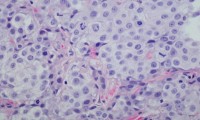-
China’s Adagene raises $50M to take anticancer antibodies into the clinic
- Source: FierceBioTech
- 595
- March 30, 2018
-
Amgen And Allergan Receive Positive CHMP Opinion For ABP 980 (Biosimilar Herceptin®) For The Treatment Of Three Types Of Cancer
- Source: finance.yahoo
- 604
- March 28, 2018
-
Bayer announces completion of rolling submission of New Drug Application in the U.S. for larotrectinib for the treatment of TRK fusion cancer
- Source: investor.bayer.de
- 590
- March 28, 2018
-
EMA starts review of Xtandi in non-metastatic prostate cancer
- Source: pmlive
- 806
- March 23, 2018
-
Bayer receives approval in China for Stivarga® (regorafenib) for the second-line systemic Treatment of liver cancer (for specialized target groups only)
- Source: 1stoncology
- 530
- March 20, 2018
-
Bellicum Announces Interim Results Showing Low Rates of Cancer Recurrence in Pediatric AML Patients Treated with BPX-501
- Source: ir.bellicum
- 543
- March 19, 2018
your submission has already been received.
OK
Subscribe
Please enter a valid Email address!
Submit
The most relevant industry news & insight will be sent to you every two weeks.













